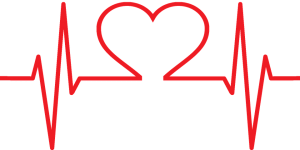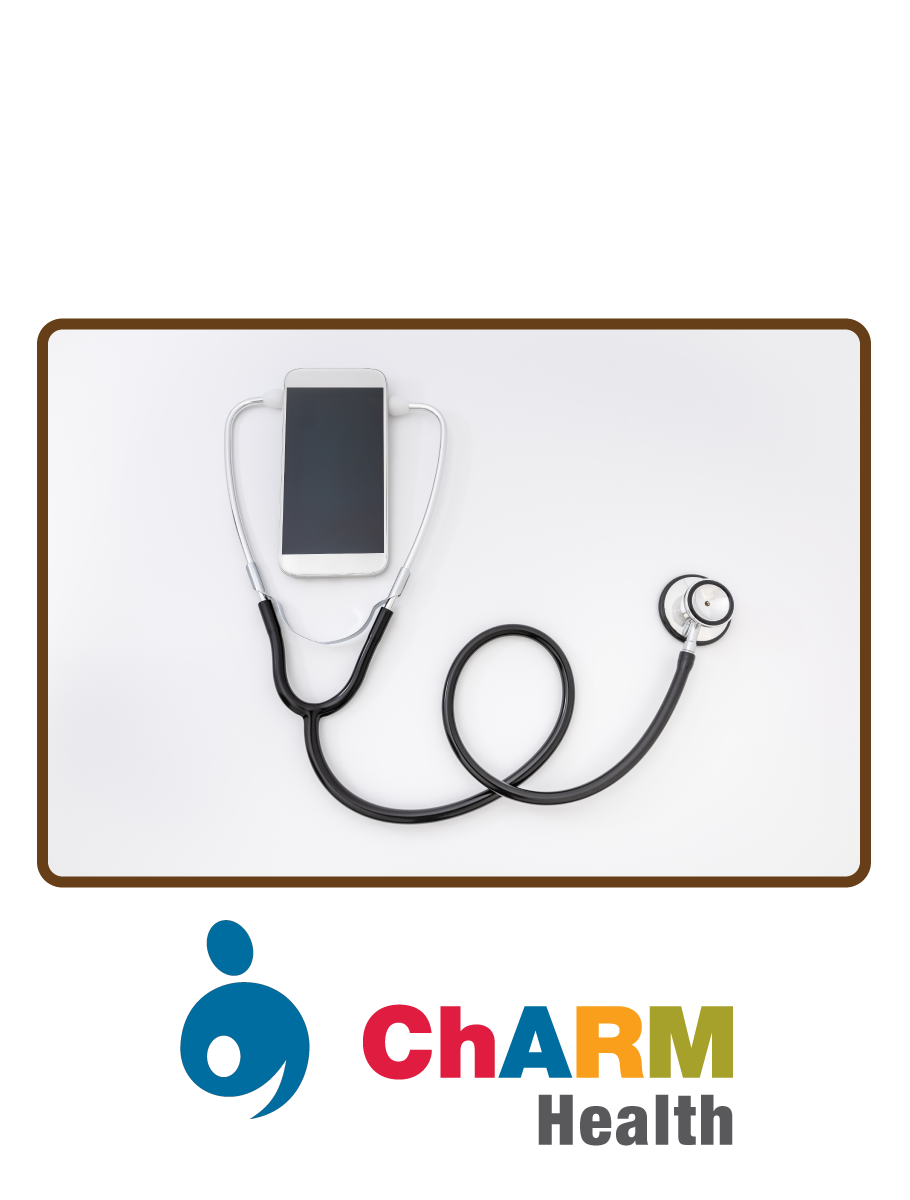Secrets to a Healthy Heart
Long before the ancient Greek surgeon Galen carried out meticulous dissections of the heart, the Egyptians wrote about health and disease in relation to how the heart “speaks in vessels” with the rest of the body. Today, physicians may not associate the heart with the soul (or soul mates), but many credit early Egyptian medical knowledge of the heart as a precursor to modern cardiology.
The Heart: Powerful, but Vulnerable
A key element of a healthy body is a healthy heart. The heart is the center of our cardiovascular system and beats an average of 100,000 times per day supplying oxygen rich blood to the whole body. Every day we make choices that have a profound affect on the health of this vital organ. Most heart disease (HD) is linked to risk factors such as lack of exercise, obesity, smoking, stress, and poor eating habits.
One major condition that can develop with these risk factors is Hypertension, also known as high blood pressure. Often called the ‘silent killer’, Hypertension can cause significant damage throughout the cardiovascular and other body systems and ultimately results in over 80 million deaths each year.
The Silent Killer
Blood pressure is the amount of pressure exerted on the inside of blood vessels as the heart pumps the blood through the body. When there is resistance in the vessels, the pressure rises and hypertension results. The longer hypertension goes undetected and/or uncontrolled, the greater the damage to blood vessels and other organs. Hypertension can lead to heart attack, stroke, ruptured blood vessels, kidney disease or failure, and heart failure.
Warning signs for high blood pressure are rare but can include headaches, blurred vision, lightheadedness, shortness of breath and nosebleeds. However, there are typically no warning signs or symptoms for hypertension, which is why it is called the silent killer.
Hypertension is diagnosed by looking at 2 numbers in your BP reading: Systolic pressure (the top number) is the pressure in your arteries when the heart beats (contracts). Diastolic pressure (bottom number) represents the pressure in your arteries between beats.
• Normal blood pressure is below 120/80
• Prehypertension is 120 – 139 systolic or 80 – 89 diastolic.
• Hypertension is 140/90 or higher
The Potassium Secret for a Healthy Heart
You’ve no doubt heard the best thing to do when you have hypertension is to reduce the amount of salt/sodium in your diet. Did you know the average adult needs 4,700 mg of potassium daily compared to only 200 mg of sodium. Unfortunately for most of us, our eating habits give us way too much sodium – 3,300 mg a day – and not nearly enough potassium. This imbalance can increase your risk of developing hypertension.
What’s truly important for your heart, and a more accurate strategy to prevent high blood pressure, is to balance the relationship between potassium and sodium (salt) in your daily diet. Proper sodium-potassium balance is necessary for nerve transmission, muscle contraction, fluid balance, and the optimal health of all the cells in your body. In regard to the heart, potassium is particularly important for regulating heart rhythm and maintaining blood pressure.
By reducing your sodium intake, you are often correcting the sodium-potassium imbalance without realizing it. To further support your heart health, eat more potassium-rich foods such as sweet potato, spinach, banana, peas, legumes, apricots, avocados, halibut and molasses.
More Healthy Heart Tips
Heart-Healthy Diet Do’s: Eat a variety of fresh fruits and dark green veggies daily. Use plant-based oils for cooking. Eat mindfully, not on-the-run. Reduce or eliminate packaged foods, sugar, and red meat.
Walk, No Need to Run: 30 minutes of daily, brisk walking lowers your risk for hypertension.
Be Calm: Learn to manage stress with healthy coping techniques, such as, deep breathing, yoga, meditation, gratitude journaling, and getting quality sleep.
Supplemental Support: Nutritional supplements shown to support heart health include Hawthorn CoQ10, Essential Fatty Acids, Magnesium, Garlic and B-vitamins. Supplements you might have heard about—Natto-K (nattokinase), Guggul, or Niacin—should not be taken without the supervision of your health practitioner.
Because some blood pressure medications affect the potassium level in the body, be sure and discuss the best strategy for making this adjustment with your Holistic Doctor.
Resources
Murray, M. “Hypertension” as cited in Pizzorno, Joseph E. (2013). Textbook of Natural Medicine. St. Louis, MO Elsevier. (chapter 174), 1475-1485.
Johnson, R.L., S. Foster, Low Dog, T. and Kiefer, D. “Plants and the Heart” in National Geographic Guide to Medicinal Herbs: The World’s Most Effective Healing Plants. Washington, D.C.: National Geographic, 2012. 100-101.
Centers for Disease Control and Prevention, National Center for Health Statistics. Underlying Cause of Death 1999-2013 on CDC WONDER Online Database, released 2015. Data are from the Multiple Cause of Death Files, 1999-2013, through the Vital Statistics Cooperative Program. Accessed on December 11, 2015.: http://wonder.cdc.gov/ucd-icd10.html
Mayo Clinic. “High Blood Pressure- Hypertension.” Updated November 10, 2015. http://www.mayoclinic.org/diseases-conditions/high-blood-pressure/basics/definition/con-20019580
National Heart, Lung & Blood Institute. “Risk Factors for High Blood Pressure.” Updated September 2015. http://www.nhlbi.nih.gov/health/health-topics/topics/hbp/atrisk
Lelong, H., Galan, P. et al., “Relationship Between Nutrition and Blood Pressure: A Cross-Sectional Analysis from the NutriNet-Santé Study, a French Web-based Cohort Study” Am J Hypertens first published online September 3, 2014 doi:10.1093/ajh/hpu164. Accessed on Dec 21, 2015: http://ajh.oxfordjournals.org/content/early/2014/09/03/ajh.hpu164
Study above cited in Time magazine article, accessed on Dec 21, 2015: http://time.com/3313332/salt-and-blood-pressure/
Appel, L.J., Brands, M.W., et al., American Heart Association. “Scientific Statement: Dietary Approaches to Prevent and Treat Hypertension.” Updated January 2014. http://dx.doi.org/10.1161/01.HYP.0000202568.01167.B6
American Heart Association. “Learn more about heart disease and high blood pressure.” Accessed on December 11, 2015. http://www.heart.org/HEARTORG/Conditions/HighBloodPressure/High-Blood-Pressure-or-Hypertension_UCM_002020_SubHomePage.jsp
American Heart Association. “Walk, Don’t Run Your Way to a Healthy Heart.” Accessed on December 11, 2015.
http://www.heart.org/HEARTORG/GettingHealthy/PhysicalActivity/Walking/Walk-Dont-Run-Your-Way-to-a-Healthy-Heart_UCM_452926_Article.jsp#.Vop0pDYwcrg
Also see:
http://www.heart.org/HEARTORG/Conditions/Conditions_UCM_001087_SubHomePage.jsp
American Heart Association. “Walking Can Lower Risk of Heart Related Conditions” Accessed on December 11, 2015.
http://newsroom.heart.org/news/walking-can-lower-risk-of-heart-related-conditions-as-much-as-running
American Heart Association. “Potassium and high blood pressure.” Last Updated August 04, 2014. Accessed on December 11, 2015.
http://www.heart.org/HEARTORG/Conditions/HighBloodPressure/PreventionTreatmentofHighBloodPressure/Potassium-and-High-Blood-Pressure_UCM_303243_Article.jsp#.Vopz2DYwcrg
Harvard School of Public Health. “Shifting the Balance of Sodium and Potassium in Your Diet.” Accessed on December 11, 2015. http://www.hsph.harvard.edu/nutritionsource/sodium-potassium-balance/
Linus Pauling Institute: Micronutrient Information Center. “Sodium (Chloride).” Last Reviewed 2008. Accessed on December 11, 2015. http://lpi.oregonstate.edu/mic/minerals/sodium
Linus Pauling Institute: Micronutrient Information Center. “Potassium.” Last Reviewed 2010. Accessed on December 11, 2015. http://lpi.oregonstate.edu/mic/minerals/potassium
Saba, Magdi M. et al., “Concepts of the Heart in Ancient Egypt” Med Sci. (Paris). 20, no.3 (March 2004): 367 – 373. http://dx.doi.org/10.1051/medsci/2004203367
English Translation: https://translate.google.com/translate?sl=auto&tl=en&js=y&prev=_t&hl=en&ie=UTF-8&u=http%3A%2F%2Fwww.medecinesciences.org%2Farticles%2Fmedsci%2Fabs%2F2004%2F03%2Fmedsci2004203p367%2Fmedsci2004203p367.html&edit-text=&act=url
About the Author
Written by Dr. Mundeir
Dr. Jaspreet Mundeir, ND is a licensed Naturopathic Doctor practicing in the East Bay Area. She is the owner of East Bay Natural Medicine where she focuses on helping patients achieve their optimal health state using homeopathy, hydrotherapy, nutritional supplements, botanical medicine and bio-identical hormones.
Famous Posts
-
Immune Booster Injections
Are you looking for an effective way to boost your...
-
Wet Socks Treatment
You’d probably never guess that a pair of wet socks...
-
Dandelion Salad Recipe with Fresh Goat Cheese & Apples
Dandelion greens pack a nutritional punch. Serve them...
-
2015 Dirty Dozen
The Environmental Working Group has put out their latest...
-
B 12 & B Complex Injections
B Vitamins are involved in many metabolic reactions...
Categories
- Blog (116)
- Events (6)
- Newsletter (38)
Recent Posts
- 20Nov
Natural Ways to Prevent and Treat Colds & Flu
BlogWhen it comes to cold and flu season, prevention really...
- 15Mar
Shopper’s Guide to Pesticides in Produce – 2023
BlogThe Environmental Working Group does invaluable work...
- 06Aug










